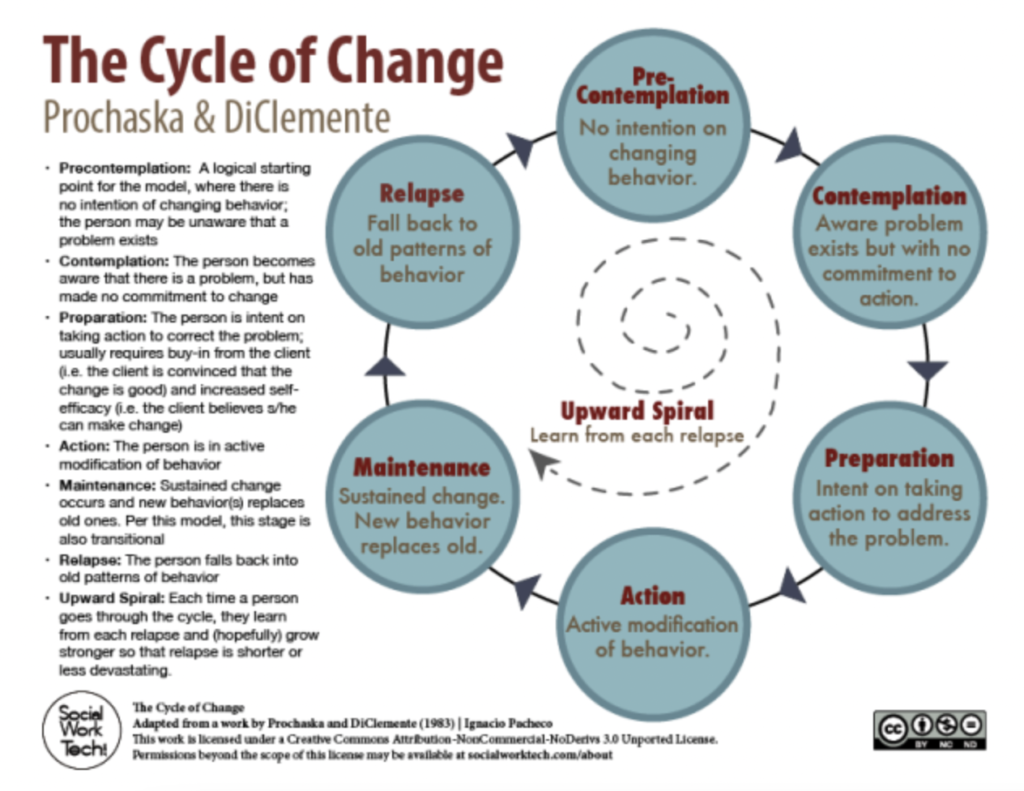“Slowly is the fastest way to get where you want to be.” – André De Shields
I heard that while listening to an interview with André De Shields on the podcast, 70 over 70. And it stuck with me.
Does it sound counterintuitive?
Maybe, but in my experience, it also rings very true. My goal, with the work I do, is to help you use your time more intentionally, in service of your own goals and values, so that you can do more of what you want, and less of what you don’t. Time is truly the most precious resource we have access to, as cliché as that sounds, because we can’t make more of it and none of us have any idea how much of it we’ll get.
I work with people who want to change their relationship with time, so that it feels abundant instead of scarce.
And do that that habit change is often required. And let me tell you, habit change comes much more slowly than anyone wants.
By the time folks come to me, they’ve had a lifetime of building up habits that DON’T work for them. And those habits are deeply ingrained. It would be silly to think you can change them overnight.
In fact, contrary to the (imo, bullsh*t) stat you’ve heard about a habit only taking 21 days to build, more recent data show us that habits actually take, on average, about 2.5 months of consistent effort to build, and that they can take up to 9 months.
And while that certainly might feel a bit discouraging at first, you also probably know from experience that it’s true.
Now, I’m a big believer in taking stock of your current reality and working with what you’ve got rather than the wishful thinking that will likely just make you feel bad.
You’ve heard the parable of the tortoise and that hare, right? Slow and steady wins the race.
And while I hesitate to compare life to a race (because that is NOT what it’s all about, in my opinion), slow and steady progress gets us to where we need to be.
Here’s something that comes up a lot in my work with folks:
I will share a skill, strategy or technique to try in one session, the client will commit to trying it out during the time between now and our next session. And then in the next session they come back, sheepish, telling me that yes, they’ve tried it, and when they do it, it really works and makes things better, but that they aren’t 100% consistent yet.
And they feel bad about this.
But, I want them to feel GREAT about this. It’s typically only 2 weeks between sessions, so what I’m always saying on repeat is some version of “If you came back after 2 weeks and told me you’ve already perfectly integrated a new technique and built a solid habit with no struggle in only 2 weeks, you’d either be lying, or be superhuman.”
There are no quick fixes in life. Habit change is hard. And it takes much longer than we want. But it is possible and it’s incredibly rewarding.
AND you’ve got to cut yourself some slack along the way.
Remember that (amazing) movie, “What About Bob?. (If you haven’t seen it, it’s a true work of genius; Bill Murray at his finest.)
And remember the motto? Baby steps!
We make progress with baby steps.
Slow, deliberate baby steps are the key to long term, sustainable change. And just because a step is smaller, it’s no less significant. Perhaps it’s more significant, because the smaller the step, the less effort is required to integrate and sustain it.
Most people can muscle through and “make themselves” do something, anything, even some big change, for a short period of time. But then your energy or motivation wanes, or you simply have a set back and you’re back to where you started.
You yo-yo yourself and it doesn’t feel good. At all.
Think of it this way:
Let’s say you want to start meditating. And you say to yourself: “My goal is to meditate 20 minutes a day”. So you set an intention, and an alarm, and for a few weeks, you’re doing it! You feel so proud!
And then, for whatever reason, you fall off the wagon. Maybe you got too busy. Maybe you got sick. Maybe you went on a business trip ang got our of your routine. But whatever the reason, now you’re in the dumps.
Now imagine a different scenario:
What instead of starting at 20 minutes, you started at 1 minute? And then once you’re consistently doing 1 minute for a few weeks, and it no longer feels hard, you add a minute. Now you’re consistently at 2 minutes, and it doesn’t feel so hard. What’s happened is that you’ve built the habit of meditating, you’ve come to like it, to require it, even, and you know when you’re going to do it.
Now when you add minutes over time, you’re slowly integrating more into your life by building on something you’re already doing. It’s easier.
And here’s the thing, even when you’ve built a strong habit. That doesn’t mean you’re never going to falter.
Below, you’ll find a graphic showing the steps in a well known model of change. You’ll see that relapse is one of the stages. But, every time you go through the cycle, the relapses become shorter and you learn from them.
We improve through faltering.

And it’s a slow process.
And that’s ok.
It’s normal.
And it will produce long term, sustainable habits vs. short term bursts of change followed by deep relapse and despair.
It’s not about being perfect.
It’s about incremental improvement and resilience.
So, where ever you on are your journey, be proud and keep working at it.
In all of my programs, when I work with clients, my goal is not to do the impossible. It’s not to produce perfect humans that never falter. (Perfection is an illusion anyway.)
The goal is not that you will never falter again.
It’s that you’ll have learned the skills and strategies that work for you so that when you fall, you’ll know how to get yourself back up and in a good place.
And we do it in baby steps, one step at a time, slowly and surely.
And to that end, right HERE, you can download a guide that’ll walk you through 8 key steps to taking control of your time, once and for all.
You won’t get there immediately, all at once.
But you will get there.


